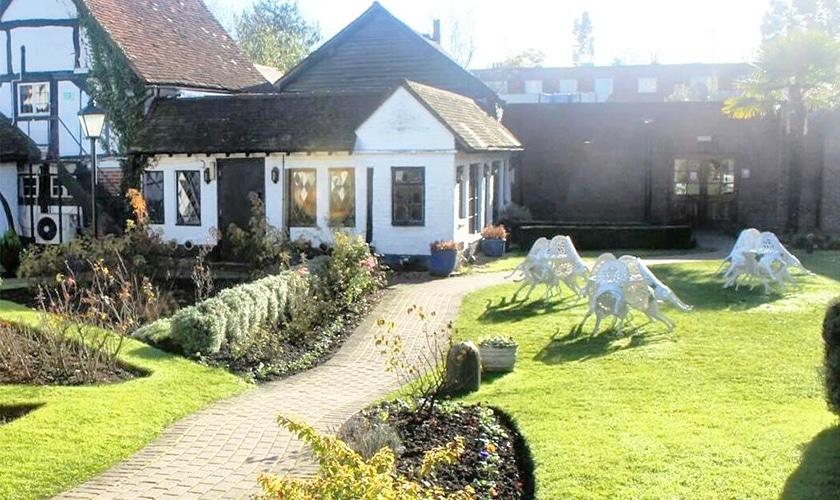Extinction Rebellion have handed a petition to St Albans City and District Council calling for the immediate halt of the use of a deadly weedkiller, following a protest over its use in August.
On September 18, the group handed the petition to the council after it was signed by 506 St Albans residents, reaching the 500 required for the matter to be discussed at the next full council meeting.
The group are protesting the use of Glyphosate, an extremely toxic weedkiller, which has been linked to cancer in humans.
The signed forms were presented to Council leader Chris White, and Councillor Simon Grover.
Handing over the forms, resident and Extinction Rebellion member Philip Fletcher said “We have been delighted by the strong support for this issue we have received in St Albans. There is considerable awareness of the pivotal role bees play in pollinating our food crops. It is also especially alarming that, according to the Natural History Museum, between 1989 and 2014 insect numbers have decreased by almost 80%.”
Lucy Bridgewater, PR manager and another St Albans resident and Extinction Rebellion member, said “Many of us will have seen the recent David Attenborough documentary ‘Extinction – The Facts’.
But the sad truth is that habitat destruction is not just happening in the Amazon.
It is also happening in St Albans, paid for by those of us who live here.”
Nearly forty UK councils have already announced bans or restrictions on the use of glyphosate, and are using a range of alternative methods.
But the deadly weedkiller is still used in a wide range of public spaces in St Albans, including Verulamium park.
A statement from the Council said: “St Albans City and District Council’s contractor uses glyphosate to spot treat weed in parks, green spaces, housing sites, cemeteries and a number of other areas managed on behalf of partner organisations.
“To completely move away from the use of chemical weed treatments and maintain the same level of weed clearance would increase costs by over £100,000 per year.
“The council is exploring options to move away from glyphosate including considering a reduced programme of weeding.”
An academic study conducted in Thanet in partnership with the University of Hertfordshire recommended an integrated approach with chemical treatments used only where needed.
Read the study at emr.ac.uk/wp-content/uploads/2015/03/BPWeeds2015web1.pdf.
Picture credit: Matt Fisher






0 Comments